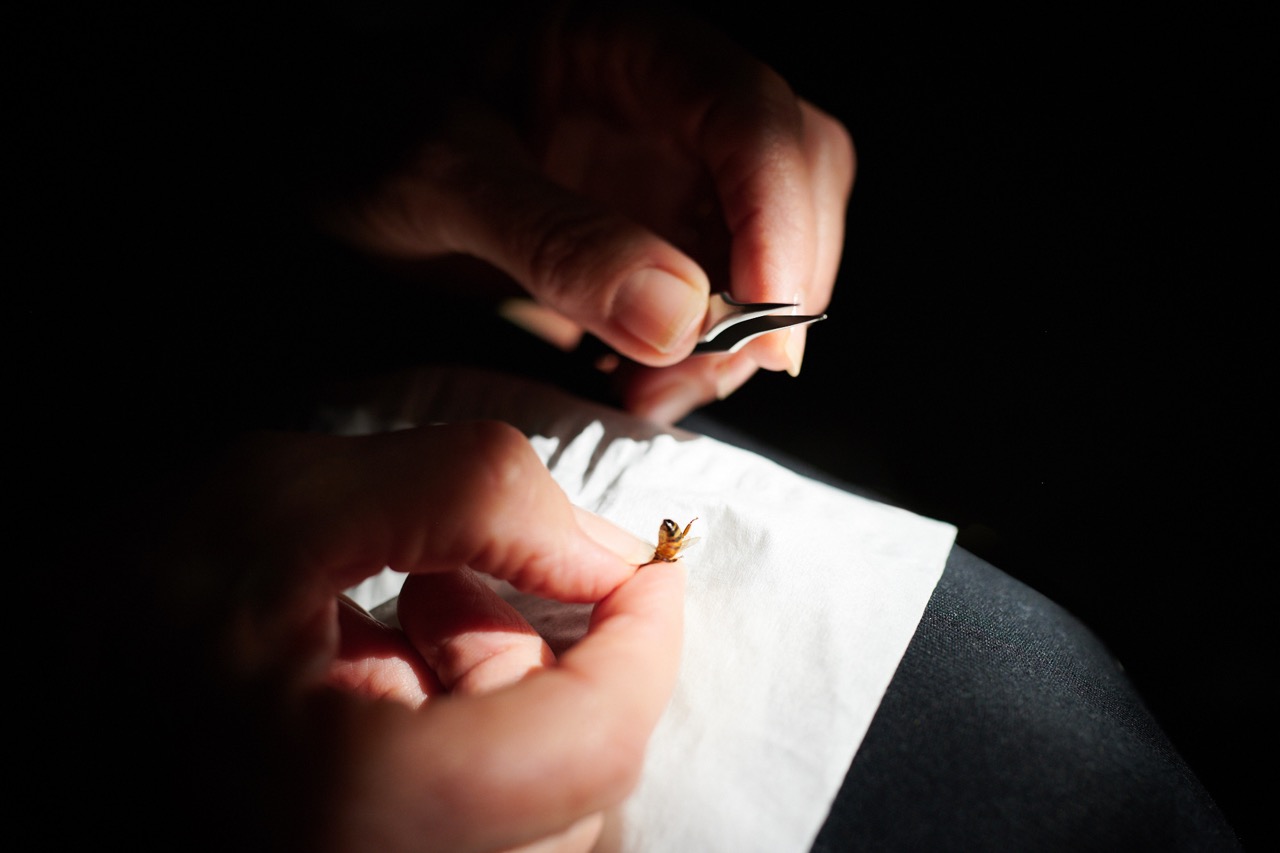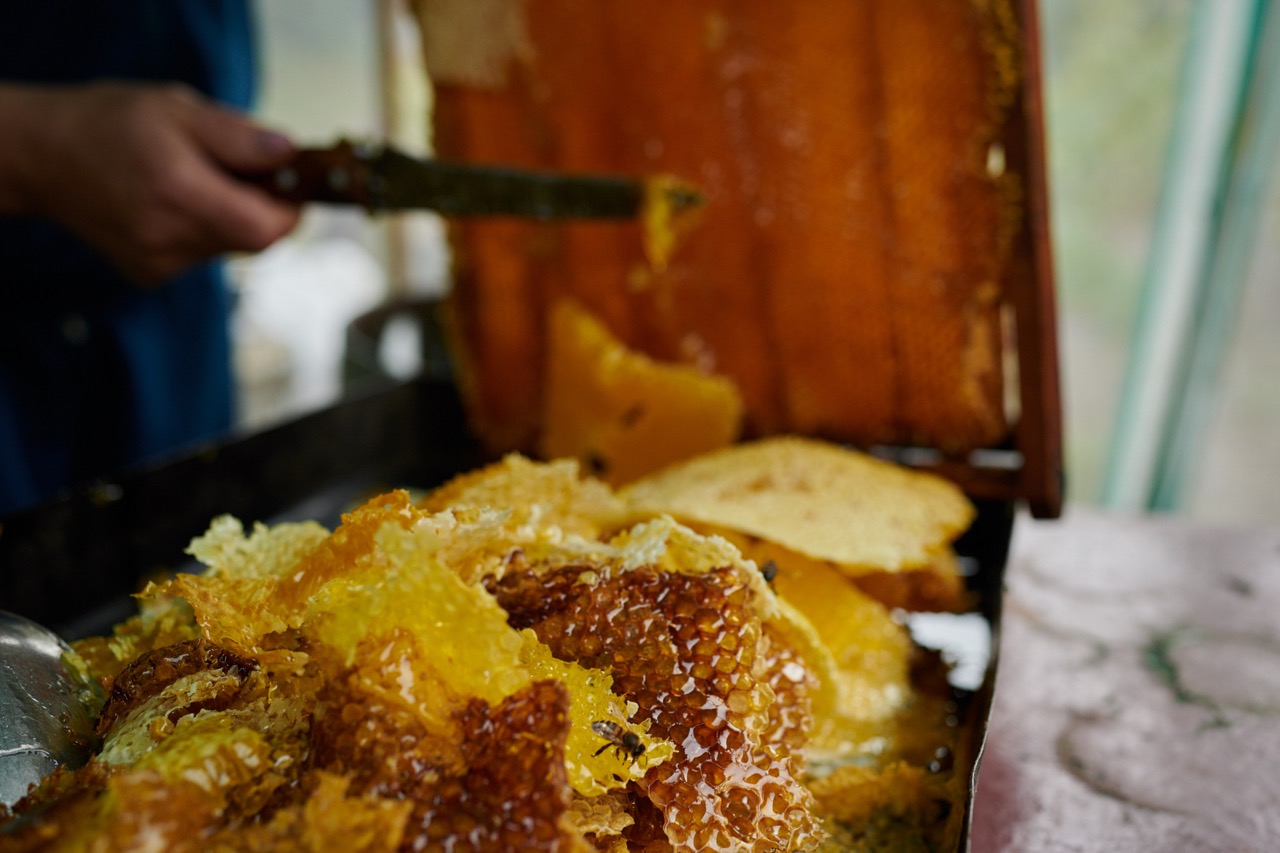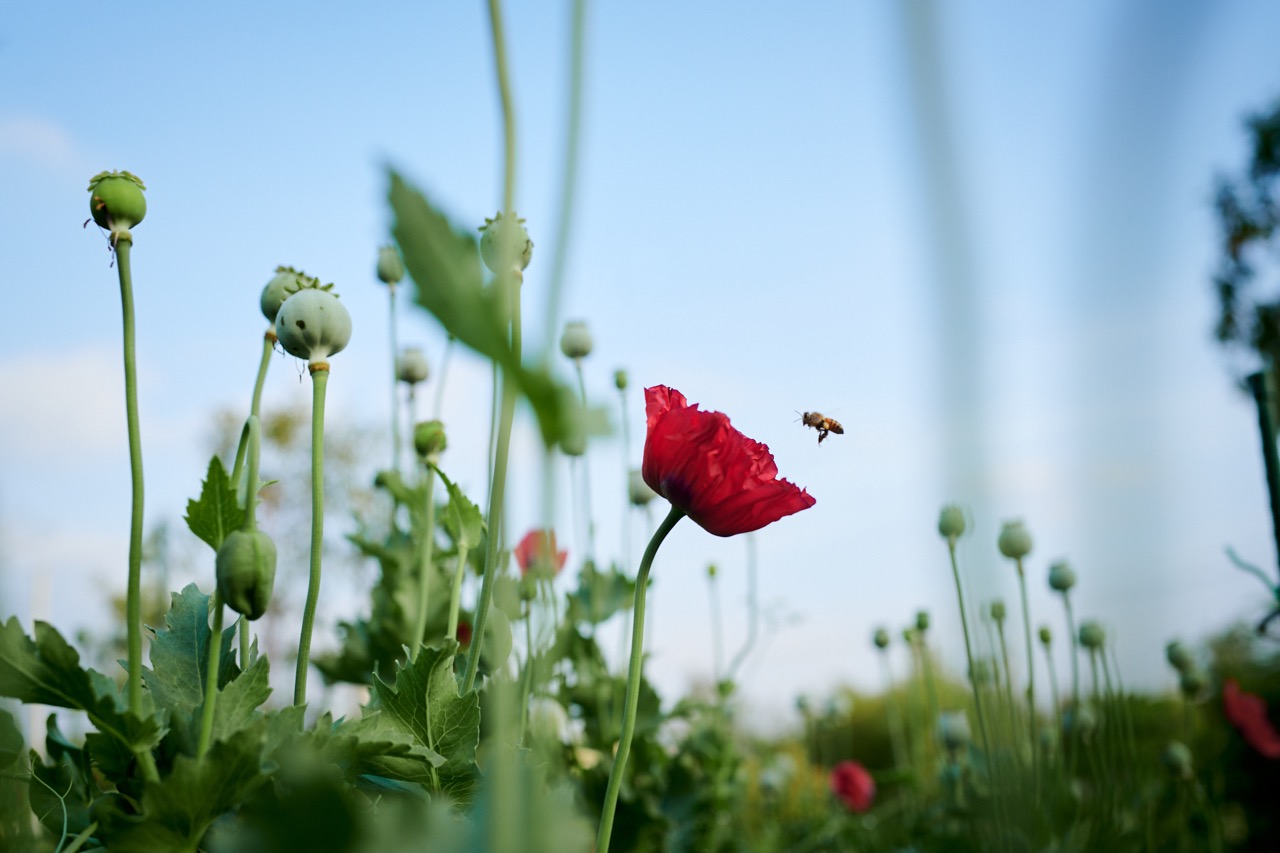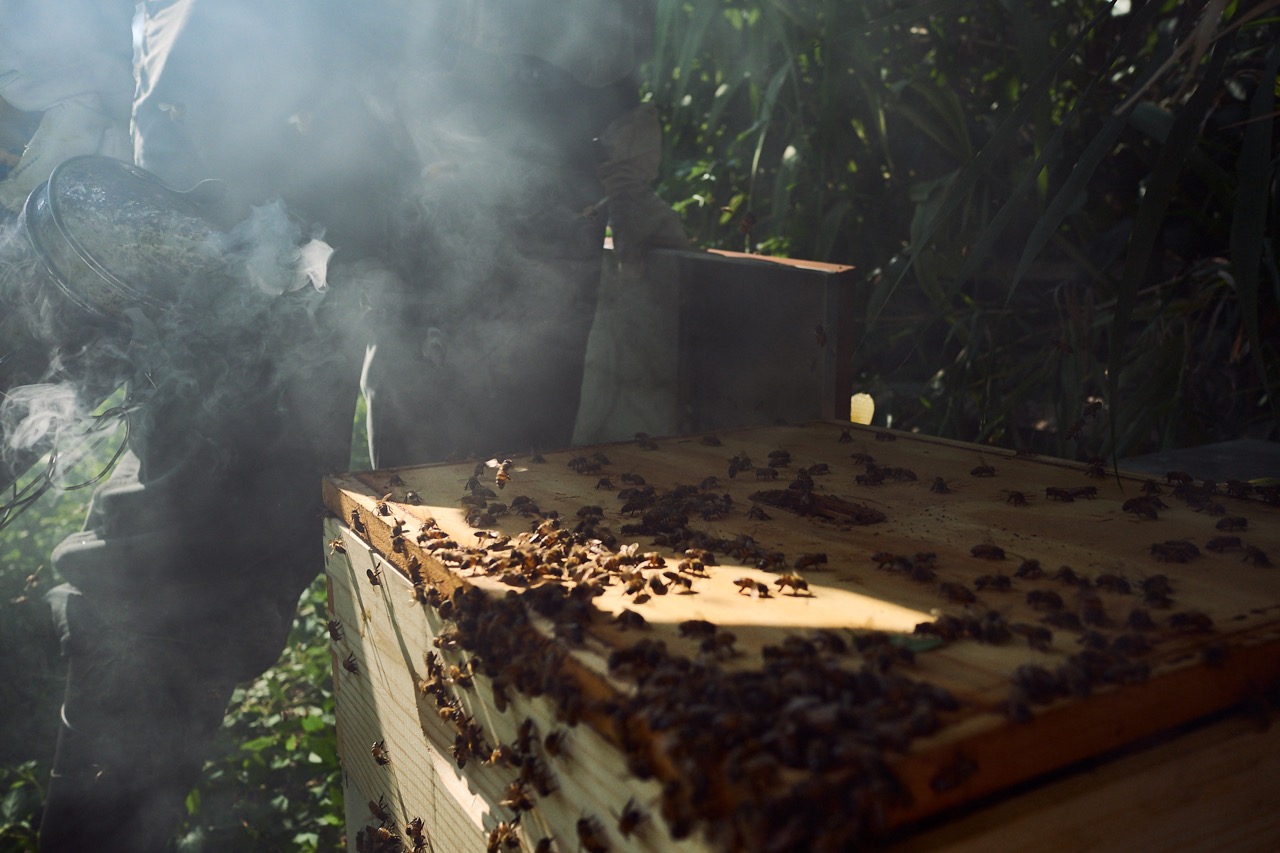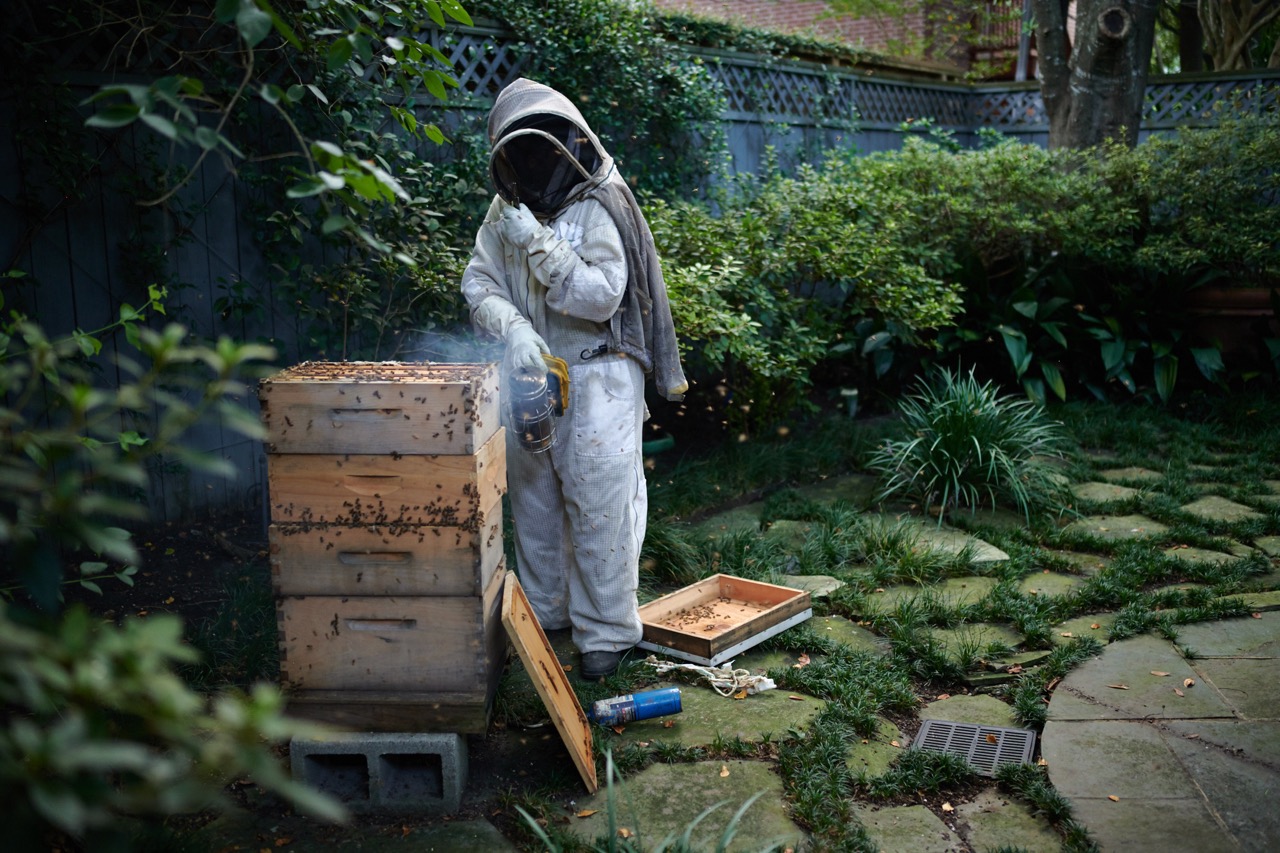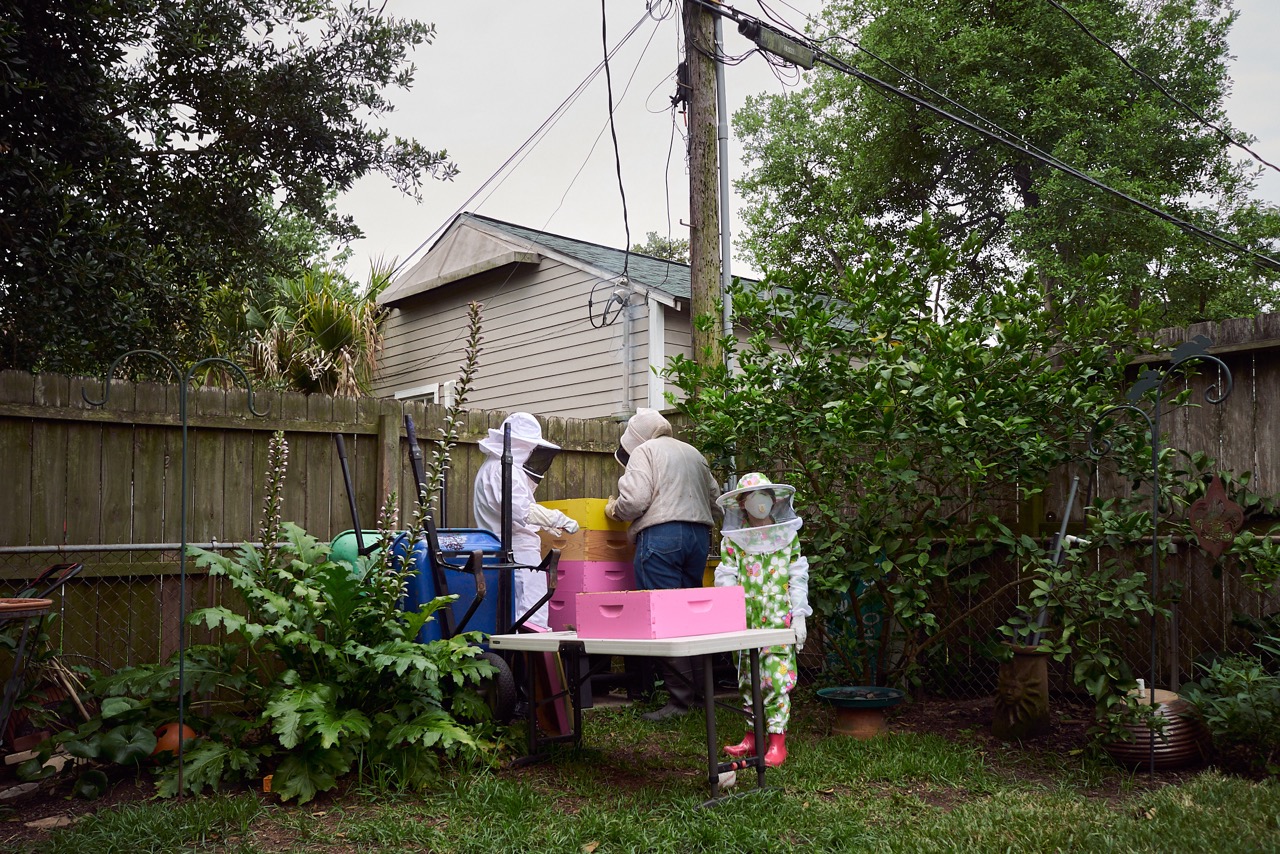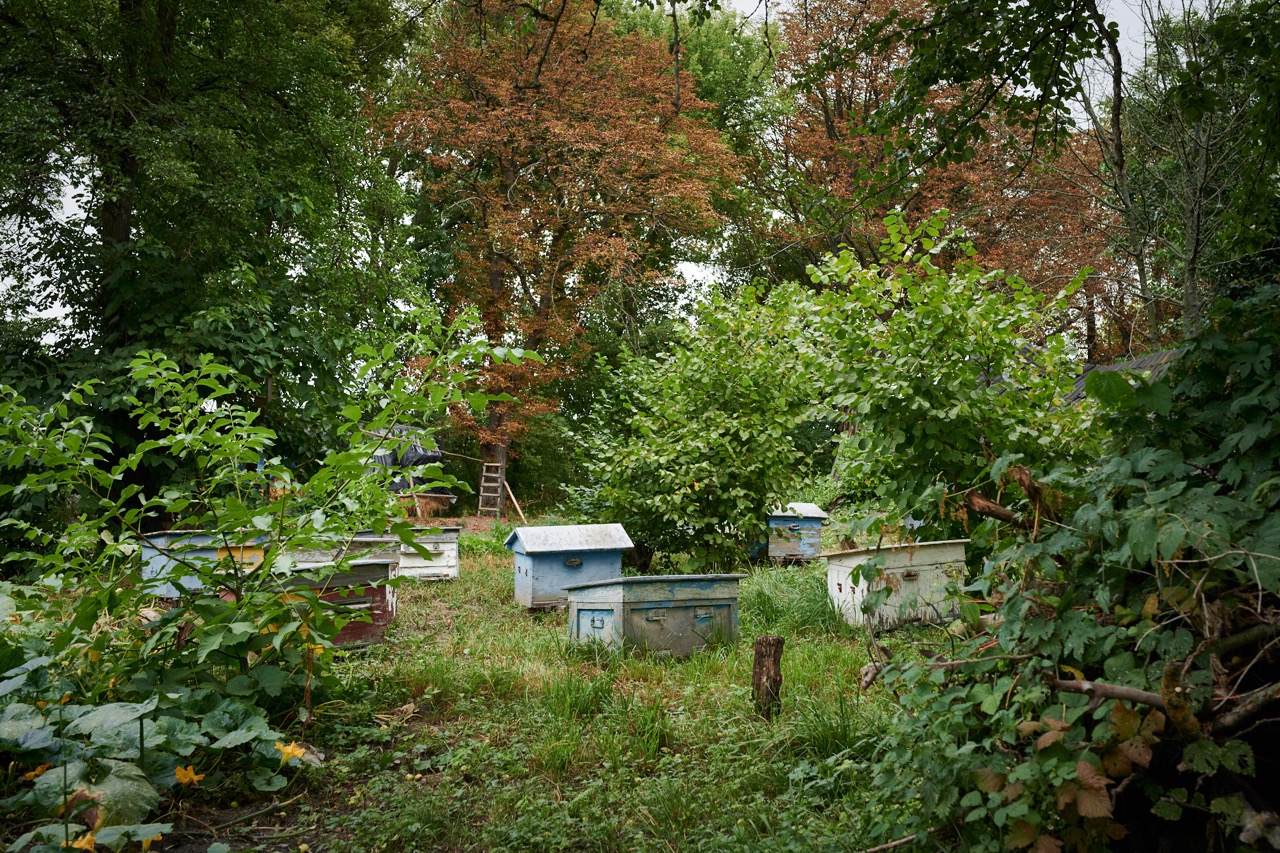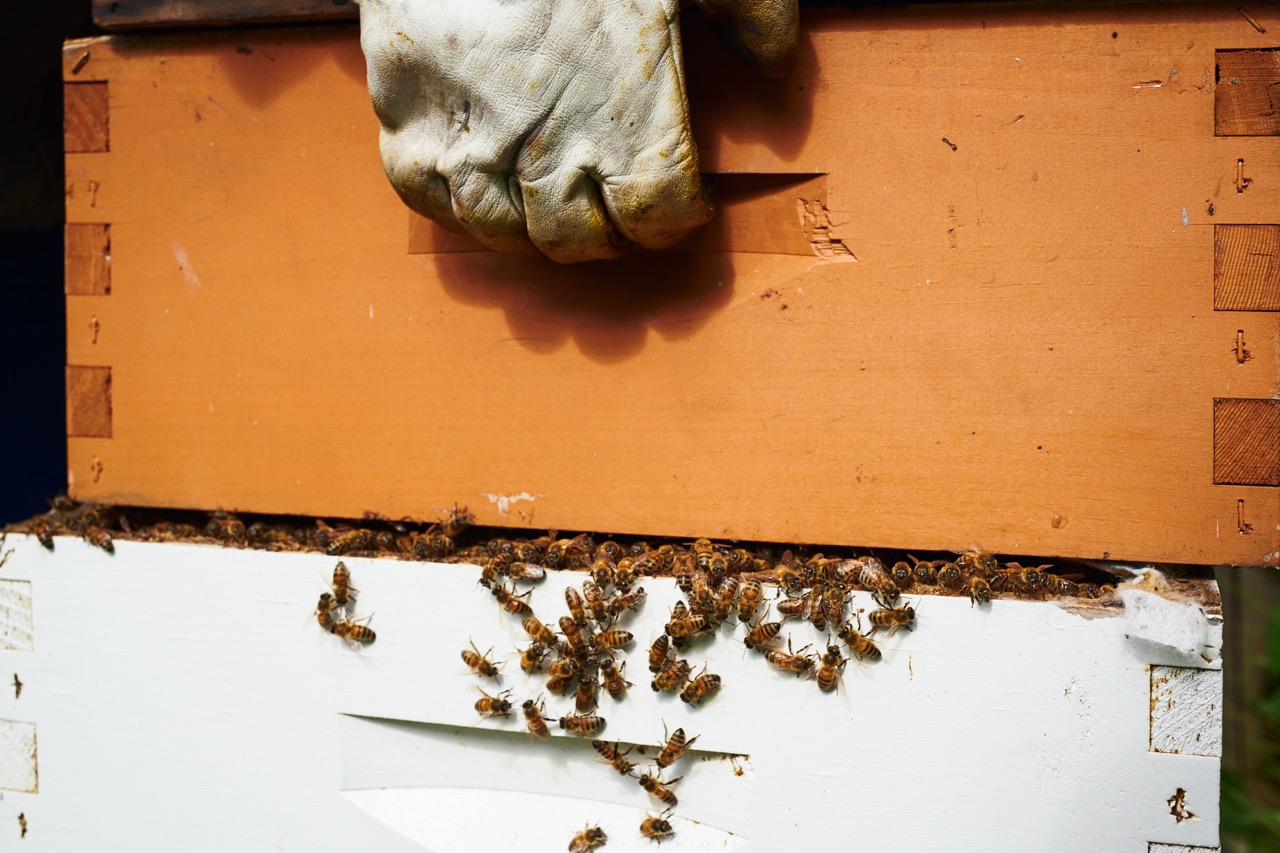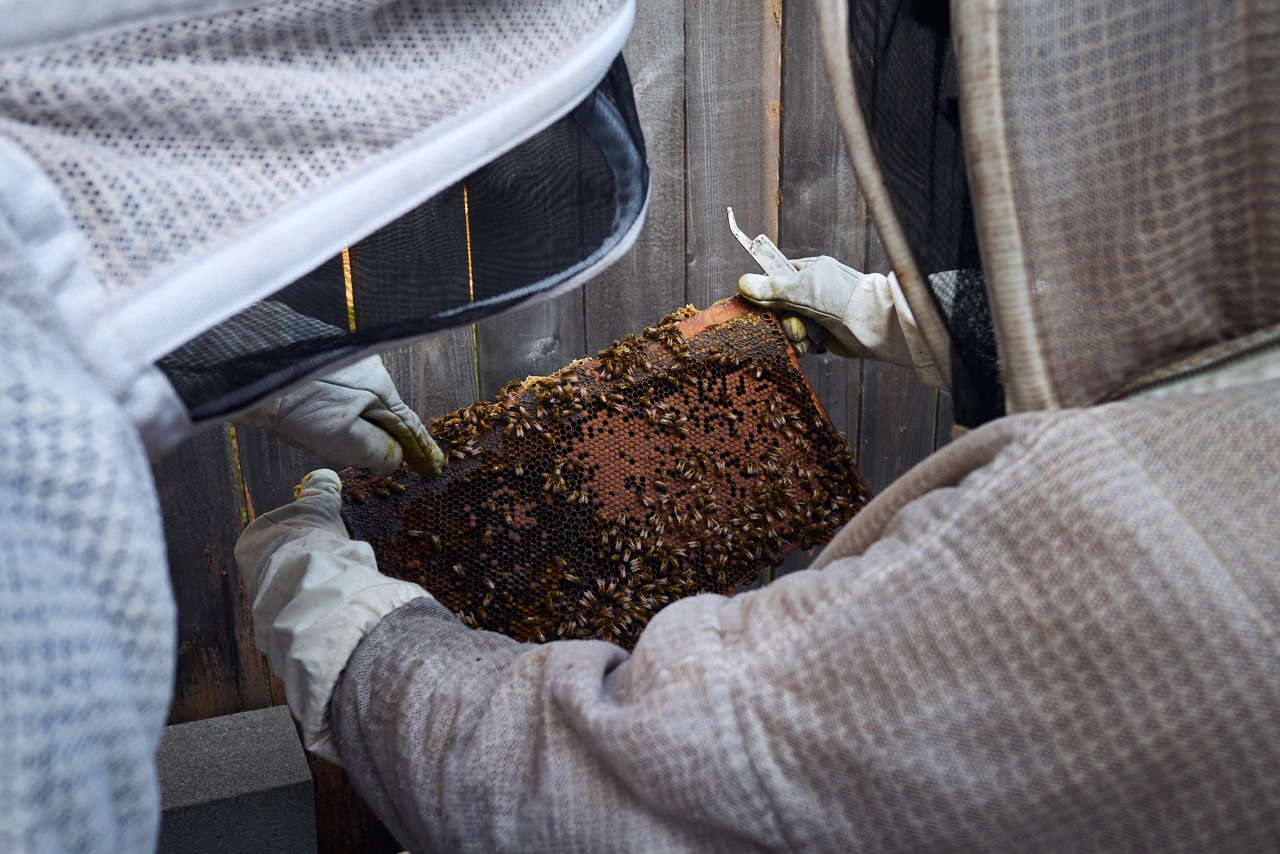Jake Eshelman
Words by Jake Eshelman
I grew up absolutely terrified of bees. As a boy, I always understood them as fierce little sentinels keeping me from picking tomatoes or smelling the flowers in my grandmother’s garden. And as I aged, I began to understand how totally irrelevant I was to them, or so I thought.
I’ve since learned that what we have, we owe to bees. Among the most prolific pollinators on the planet, bees helped create and maintain the biodiverse ecosystems that made it possible for humanity to take root and grow. Over millions of years, our shared evolution has grown increasingly intertwined. And today, human activity is impacting wild and domesticated bee populations in unprecedented ways. Due to the integral role bees play in supporting the ecosystems we depend on, this ongoing relationship affects us all—bee, human, and otherwise. What was once a fear of bees has since transformed into a fear for bees and, by extension, for our shared ecology as a whole. And now I wonder: if we look closer at our relationships with bees, what might we learn about our responsibilities to all other-than-human beings?
To help imagine new ways to address our unfolding ecological crises, Telling of the Bees explores the nuanced and complex relationships between people and bees. More specifically, this evolving body of work considers the opportunities and implications of these interspecies interactions as they manifest across industry, agriculture, ecological research, environmental conservation, human healthcare, bioengineering, and spirituality.
